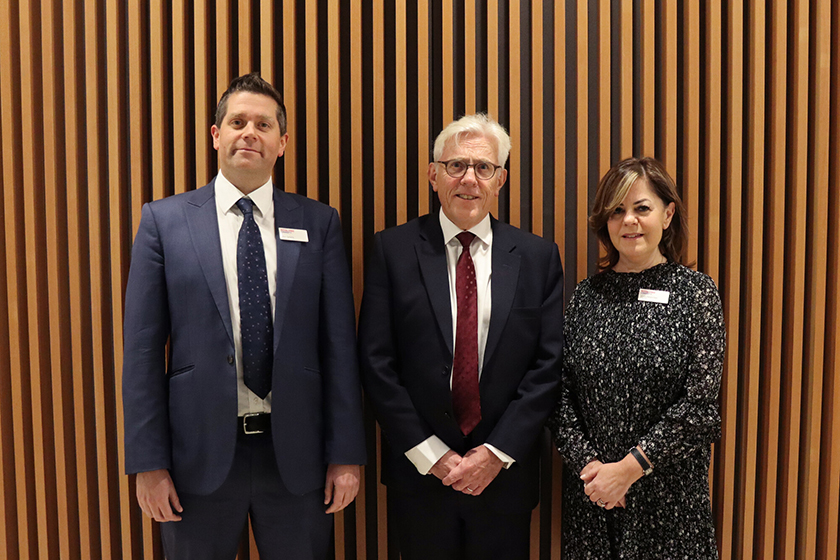
Crucial role for RFL in global response to cancer
23 November 2023
The Royal Free London (RFL) has a crucial role to play in the global response to the challenges of treating and curing cancer, according to the former head of the NHS in London.
Sir David Sloman, who led London’s operational response to COVID-19 and retired last month as the chief operating officer of NHS England, cited RFL’s significance as one of the biggest cancer care providers in the UK and a major contributor to global research as essential to treating and curing cancer in the future.
Sir David made his comments last week at the prestigious Marsden Lecture, a long-established annual lecture series in which prominent experts are invited to discuss issues and challenges of significance in the world of academia and healthcare.
Sir David said: “RFL is now one of, if not the largest, provider of cancer care in London,” he elaborated. “London has the biggest concentration of secondary care excellence anywhere in the world, with two of the top universities and medical schools in the world.
“Both in healthcare and in the context of the importance of life sciences to our future economy, this trust must play a leading international role in looking at how we tackle the challenge of cancer.”
Sir David used the lecture as an opportunity to reflect on his 40-year career in health services, which included his tenure as RFL group chief executive (2009-2018).
Global challenges
From the escalating burden of disease in an aging population to the swift advances in medical technology, Sir David provided a comprehensive overview of the pressing issues facing all healthcare systems.
He highlighted four overarching challenges:
• the increasing burden of disease due to longer life expectancy
• the relentless march of technology in medical advancements
• rising patient expectations,
• the financial conundrum of funding healthcare systems amid these challenges.
Additionally, Sir David highlighted two more recent challenges: the international workforce shortage and the global recovery from the impact of the COVID-19 pandemic on healthcare systems.
Sir David used his speech to call for collaboration and innovation, emphasising the need for healthcare systems to adapt and learn from one another in the face of shared challenges.
“These problems are truly global. My biggest learning is that internationally we are all in this together, which begs the question: how are we all going to get out of this together?” he said.
“The future of hospital and specialist care is all about scale and creating centres of excellence which bring together high volumes of patients and high volumes of care to sit alongside centres of clinical and academic excellence.
“This is essential if we are to research, learn and innovate in how we tackle, cure and care for people with cancer into the future.”
Jon Spiers, chief executive of the Royal Free Charity, said: “In the global fight against cancer, the Royal Free London is a beacon of hope thanks to its pivotal role at the intersection of clinical care, groundbreaking research and international collaboration. As the trust’s strategic charity partner, we’re committed to fostering the conditions for innovation and the pursuit of excellence for care and cure.”
Photo (left to right): Jon Spiers, chief executive, Royal Free Charity, Sir David Sloman, Judy Dewinter, chair of trustees, Royal Free Charity



